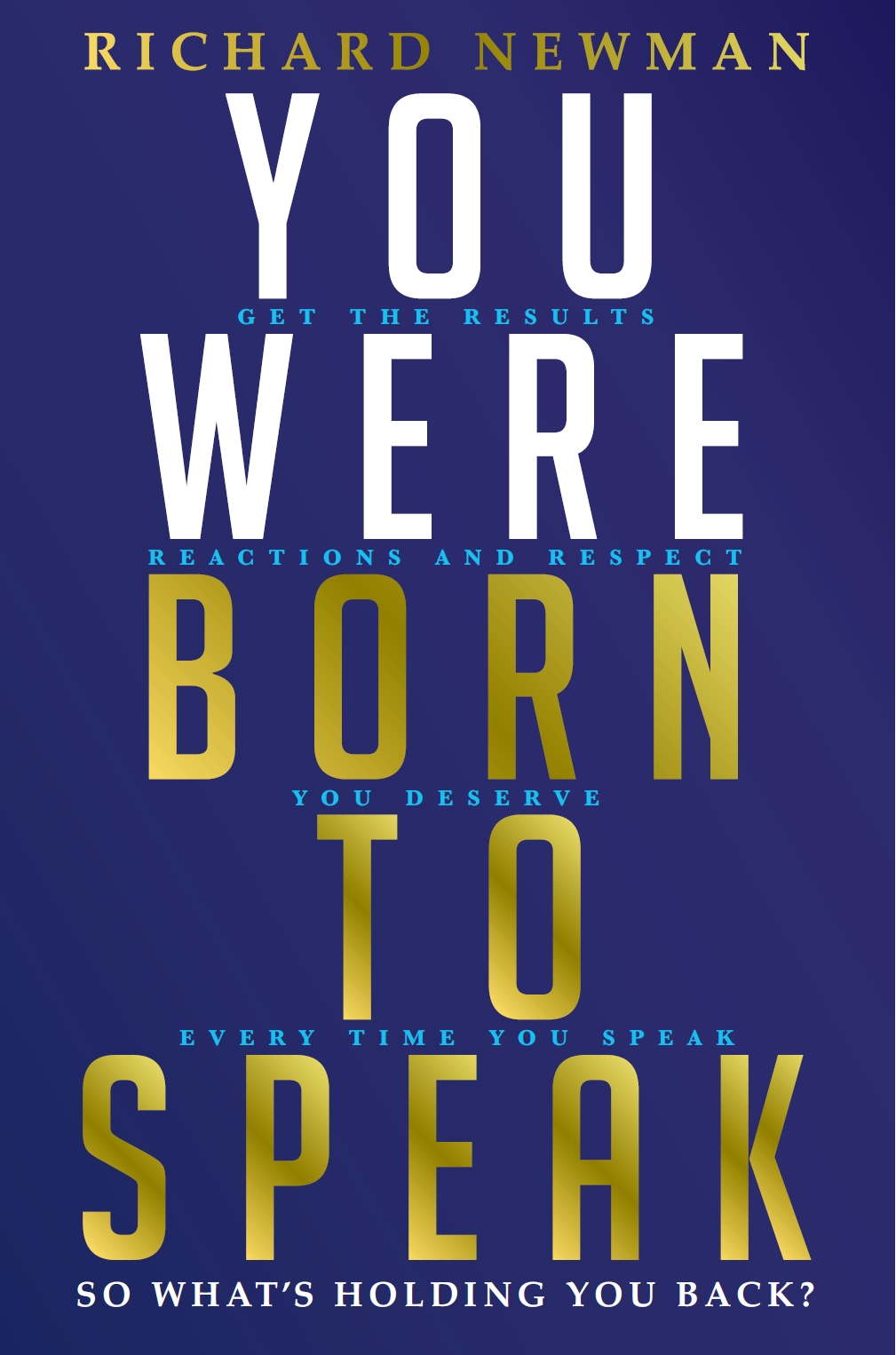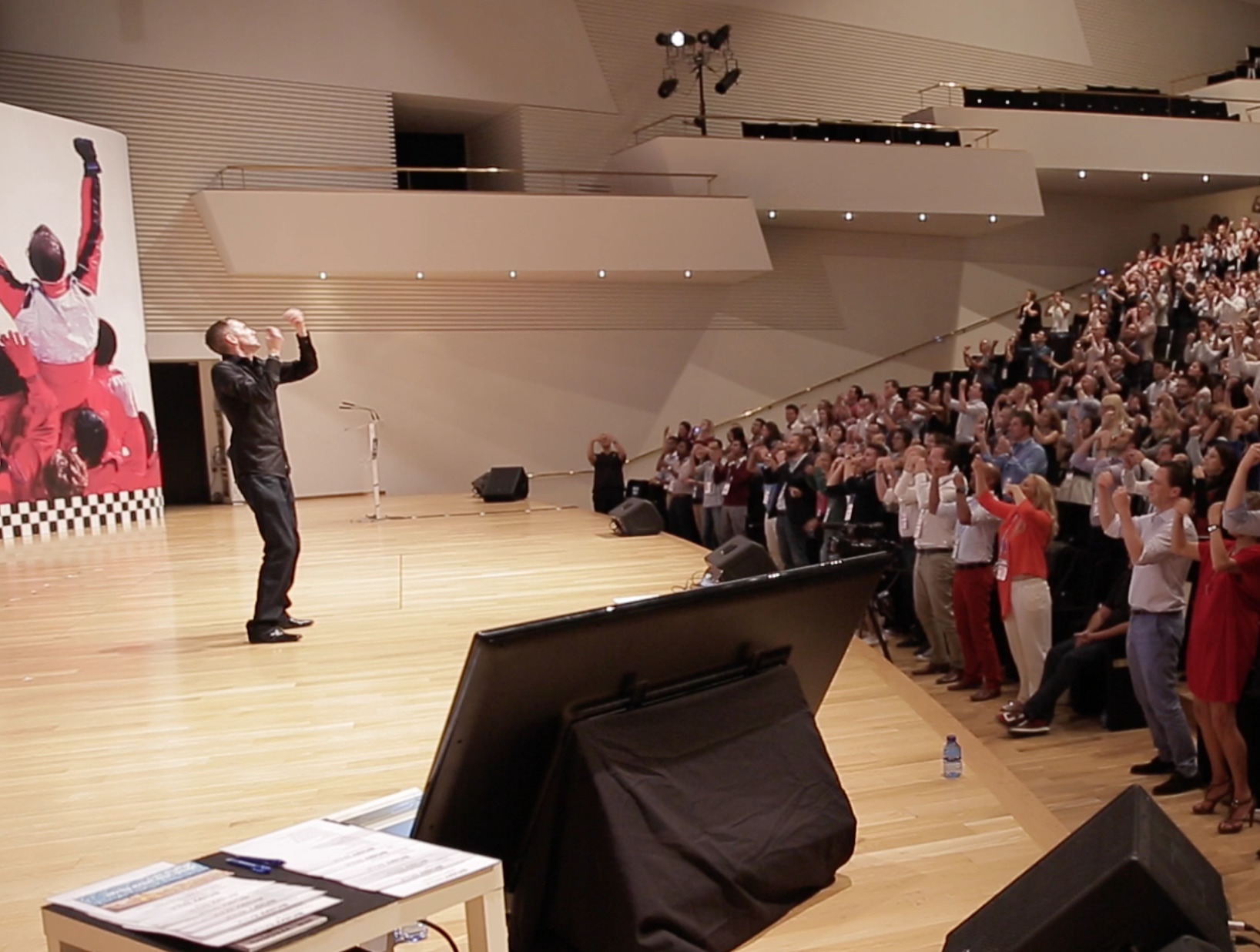
Have you ever been in a meeting and wondered, ‘Why is nobody listening to me?’ Perhaps they were ignoring you, interrupting or rejecting your ideas. In an interview this can feel even more frustrating, when you know you are the right person for the job, yet they end up hiring someone else.
What if you could make a few small changes and get totally different results? Just imagine if you could go from being ignored to being supported and even promoted.
One of my clients explained that her team of twenty people had been disagreeing about how to move forward on a project for six weeks. They had regular conference calls to try and move things forward, but nobody would listen. She was attending a two-day workshop with me and part way through the second day she got up to leave. “I’m really sorry, I have to go,” she said. About thirty minutes later she came back in, looking proud and announced, “I nailed it!” We all asked where she had been. She had attended another conference call with her team. Just before picking up the phone she thought through everything we had been teaching her and wrote a few simple notes. Within thirty minutes she had convinced all of them to gladly move forward with her ideas.
Many more clients have reported gaining new roles, promotions and winning greater respect through focusing on three simple areas. You can do the same to ensure your ideas are heard and you gain the results you deserve. Simply think about: Style, Story and State.

1) Style – I always tell graduates, “Your CV will get you an interview, your communication skills get you the job.” Later in your career there are more elements at play, including office politics, but how you physically represent yourself is still hugely important.
We proved this in a scientific study, that was published in the Journal of Psychology in 2016, involving 2000 people from around the world. Men and women, from many different countries, ages and races took part. The results proved that small changes in your communication style will allow you to convince 42% more people with your ideas, regardless of your race or gender.
The study showed that people who stand with their feet together and make small gestures are given poor ratings. Swaying, leaning on one hip and keeping your hands still also rated poorly. However, if you emphasise key points with palms up and palms down gestures, while standing with your feet apart, you are deemed to be more inspiring, convincing and a better leader, even if you say the same words!
Why does this work? If you stand with your feet together, or lean to one side, you are physically a ‘push-over’. Gravity is working against you. You are physically weaker in those positions. If you stand with your feet apart, body centred and upright, gravity is working with you and you appear to have more ‘gravitas’. Humans also enjoy visual variety, so adding the gestures gains more attention for your ideas.
2) Story - We all know that facts tell, but stories sell. You may have great data to prove your ideas, but you have to win our attention first. Instead of diving into the details about your idea, or saying why you should get a promotion, try this instead. Explain the current challenges that people are facing. Then describe a better future. Finally tell them how you will help them get there and give your data as evidence. This journey will compel them to listen and clarify the value of your ideas.
3) State - Sometimes the pressure of an important meeting can take over and cause you to stumble. You may fall over your words, forget the key message and feel shaken. In that moment, being able to shift yourself from a poor state to a peak state can mean the difference between success and failure.
There are many things you can do, but one of the most effective is to flip anxiety upside down. Anxiety comes from worrying about a negative future. It causes your heart to race and your breath becomes shallow. You can reverse this. Before critical events I coach our clients to do the opposite.
Firstly, focus on your breathing. Slow it down. Breathe in for 5, hold for 5, breathe out for 5 and hold for 2. This will lower your heart rate and calm your mind.
Secondly, imagine a positive outcome. See yourself doing a good job in the meeting. Feel yourself in a calm and positive state, as you achieve your goal.
This is just a sample of the many things you can do to gain the results you deserve, and I certainly hope this will help you. To find out more you can buy the new book You Were Born To Speak from https://www.borntospeak.com
Richard Newman is an award-winning corporate communications expert whose consultancy, Body Talk, has coached more than 50,000 people from 45 countries worldwide and clients include a Formula One team, celebrities and international business leaders. He won the 2014 Cicero Grand Prize Award for Best International Speechwriter, selected from 500 professionals worldwide, and his groundbreaking research into non-verbal communication, conducted in conjunction with UCL, was published by the Journal of Psychology in 2016. The research showed that professionals can increase the rating of their leadership skills by 44 per cent with a few simple changes in their communication style.
Richard’s new book, You Were Born to Speak is available now, priced £14.99, from Amazon UK and from www.borntospeak.com. Profits go to AfriKids, Room to Read, and the Tibetan Children’s Education Foundation.

Exclusive Q&A with Richard Newman
We catch up with author and award-winning international communications expert Richard Newman to find out more how to develop better communication skills.
You recall being a painfully shy child - what one piece of advice would you give your younger self now about ‘speaking up’?
Change your story – we assign meaning to the events that happen around us and turn them into the story of our life. We act in accordance to that story. The things that we do over and over become our identity, or our character within that story. Find new meaning in the events that have happened to you, change the story of your life and your perceived identity will shift to match your new story.
Your book makes some interesting observations about perceived differences in how men and women ‘ought’ to stand – do you think ideas are changing about what constitutes a masculine/feminine stance?
This is highly ingrained and I haven’t noticed much change in this over the 20 years I’ve been coaching people. However, when I go to teach clients in New York and recommend they stand with feet shoulder width apart (the way they were naturally born to stand) men and women all say, “Of course, that’s how I stand on the subway into work!”
It’s often reported that women are less likely than men to speak up in business meetings. What can women do to gain confidence and redress the balance?
There’s three things I would suggest. Firstly, BBC journalist Katty Kay suggests that you speak within the first five minutes of every meeting, to ensure your voice becomes part of the conversation. You’ll then feel more confident to continue adding your opinion. Secondly, be prepared to put your voice forward when you may not feel qualified (research shows that men apply for roles when they possess 40% of the qualifications and women wait until they are close to 100% qualified). Thirdly, visualise yourself speaking in the meeting and gaining a good response. Often people hold back out of fear of rejection. That’s just a negative visualisation. Change the assumption in your head by seeing yourself gaining good reactions.
How much of a role do you think appropriate dress plays in sending out the ‘right’ messages in business?
I always tell people that there are no ‘rights and wrongs’ in body language. It is all about how you want people to feel about you and your message. The same applies to clothing. Consider the people you are meeting and how you want them to feel about you.
You say we are all ‘Born To Speak’. Why do you think so many people find it hard to express themselves in public, and how easy is it to improve?
It’s important to remember that standing up in front of a group of hungry-looking mammals will always cause a small rush of adrenaline or cortisol (stress hormone) in the body. We also fear rejection from the tribe, which causes us to fear for our survival. Finally, Brene Brown often talks about our need to ‘fit in’ and how crushing this can be. We simply need to remember that these ancient survival instincts are no longer relevant. We can quickly overcome them by settling down the ‘monkey mind’ in our head. In the space of two days I have seen clients go from terrified to enjoying public speaking, by learning how to soothe the monkey and change their mindset. You can do this through positive self-talk (telling the monkey mind ‘I’m in the right place’, ‘I know what I’m doing’), deep diaphragmatic breathing which reduces your adrenaline, and positive visualisations which help your mind to believe that all will go well.

Your story has an interesting beginning - do you think you would have followed the same career path if you had not spent time with the non-English-speaking Tibetan monks in the Himalayas?
If I hadn’t gone to live with the monks I would have gone straight into acting school. I would still have learned tremendous skills in communication from the acting teachers, but living with the monks allowed me to see a greater importance in how we connect with each other. Being at the monastery helped me discover how deeply valuable non-verbal communication can be to understand what people feel below the surface.
What advice would you give to mothers of shy children who might be suffering in the classroom because of a lack of confidence?
Get them into acting classes. I was painfully shy for many years, but I found confidence in doing plays, because I always knew what to say and where to stand. It took away my awkwardness and uncertainty and allowed me to speak out under the guise of being another character.
You enjoyed acting at school despite being shy. Would you say that a lot of apparently confident actors are inwardly shy, and how do they get around it?
Absolutely – most of the actors I trained with were insecure. They found comfort in being on stage and expressing themselves through the arts. I also find that my most introverted clients are often the easiest to teach and the fastest to improve, because they are so grateful to gain direction on how to move and what to say, that they quickly gain confidence, find their style and take off.

